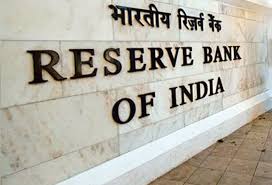Book Consultation
8081444000Book Consultation
8081444000Home Read Blogs

In view of the ongoing stress and the heightened uncertainty on account of the pandemic, RBI said it is imperative that banks continue to conserve capital to support the economy and absorb losses, if any In view of the economic shock caused by the COVID-19 pandemic, Reserve Bank of India (RBI) on Friday asked scheduled commercial banks and co-operative banks not to make any dividends for the financial year ended March 2020.
In view of the ongoing stress and the heightened uncertainty on account of the pandemic, RBI said it is imperative that banks continue to conserve capital to support the economy and absorb losses, if any. The decision is based on review of the September quarter financial performance of banks.
In response to the pandemic, RBI has focused on resolution of stress among borrowers, and facilitating credit flow to the economy, while ensuring financial stability, RBI Governor Shaktikanta Das said.
"In continuation of this effort and to help banks conserve capital, while creating room for fresh lending, it has been decided after a review that commercial and co-operative banks will retain the profits and not make any dividend pay-out from the profits pertaining to financial year 2019-20," he said.
Guidelines on the above measure will be issued shortly. In April, RBI had announced that scheduled commercial banks (SCBs) and cooperative banks shall not make any dividend payouts from profits pertaining to the financial year ended March 31, 2020, until further instructions, which shall be reassessed based on financial results of banks for the quarter ending September 30, 2020.
Unlike banks, RBI said, currently there are no guidelines in place with regard to distribution of dividend by non-banking financial companies (NBFCs).
"Keeping in view the increasing significance of NBFCs in the financial system and their interlinkages with different segments, it has been decided to formulate guidelines on dividend distribution by NBFCs. Different categories of NBFCs would be allowed to declare dividend as per a matrix of parameters, subject to a set of generic conditions. A draft circular in this regard will be issued shortly for public comments," he said.
RBI further said the ombudsman mechanism instituted by the Reserve Bank is an alternate grievance redress mechanism.
"With a view to enhancing the efficacy of the grievance redress mechanism in banks, it has been decided to put in place a comprehensive framework comprising inter alia (i) enhanced disclosures on customer complaints, (ii) monetary disincentives in the form of recovery of cost of redress of complaints, and (iii) undertaking intensive review of grievance redress mechanisms and supervisory action against regulated entities failing to improve their redress mechanisms," he said.The framework would be put in place during January 2021, RBI said.

Centre mulls 'bad bank', PSB privatisation for Budget 2021

Bankers' sentiment on lending improves; loan demand to rise: RBI survey

Income tax department conducts search and survey in Assam

RBI urges banks to conserve profit, not issue any dividends for FY20

Farm reform bills not brought in a jiffy: Nirmala Sitharaman

Union Budget 2021: Finance Minister Nirmala Sitharaman promises ‘never before’ like Budget

Chhatisgarh takes Rs 1.1 lakh cr option to meet GST compensation shortfall

Manufacturing firms log 'softer contraction' in sales at 4.3% in Q2 FY21: RBI data

Social and Emotional Learning: The Real Gap in India's Education System

Deadline For Filing Annual GST Return Extended

Finance Ministry releases weekly instalment of Rs 6,000 cr to meet GST shortfall

Income tax return filing due date: Will Nirmala Sitharaman extend ITR last date/deadline for tax payers?

Income Tax Return 2019-20: More than 4.06 crore persons filed return till December 25 | Hurry ! Last date is December 31

RBI MPC Meet: Repo rate unchanged at 4%; 'accommodative' stance maintained

Centre Notifies Three-Month Extension Of IBC Suspension